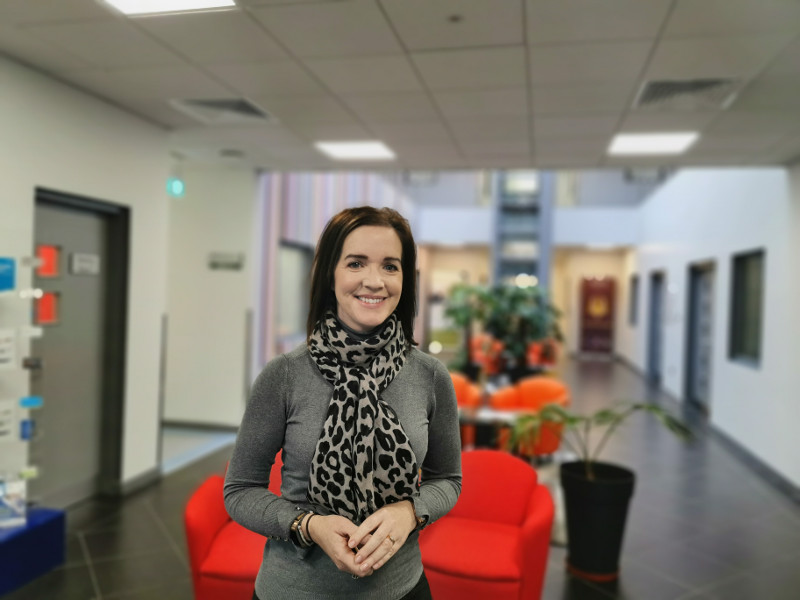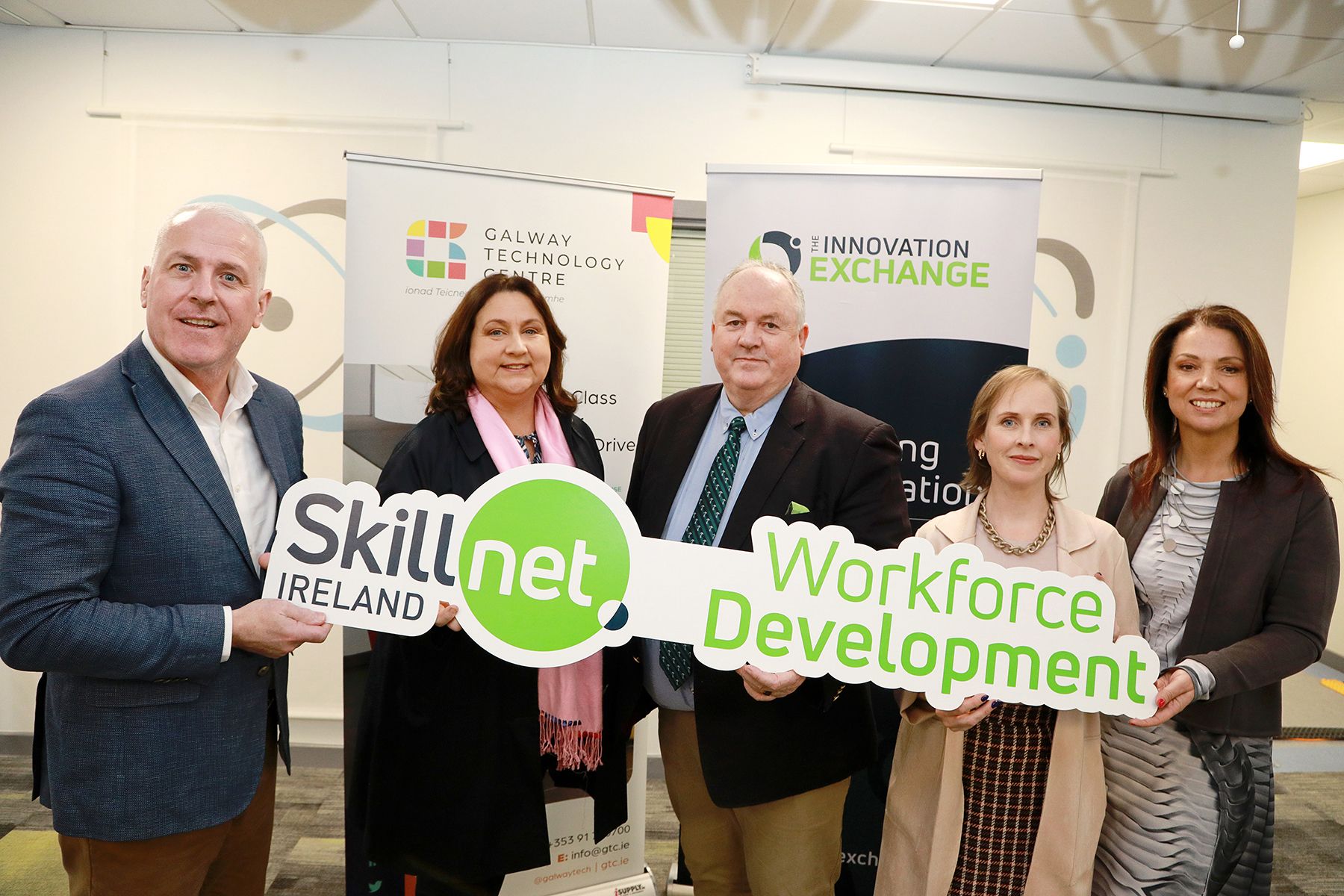Podcast Ep 157: Conor Carmody from The Innovation Exchange aims to bridge the gap between indigenous SMEs and larger local and global multinationals by making business happen.
In our latest podcast Conor Carmody from The Innovation Exchange talks about his mission to connect large indigenous and multinational companies with digital challenges with smaller Irish tech companies in a move that raises all boats.
The Innovation Exchange is an innovation marketplace that connects large companies facing digital transformation challenges with smaller tech companies to fast-track the solutions, Innovation Exchange is a partnership between Skillnet Ireland and Furthr, formerly Dublin BIC.
“It seemed to me that there was a large gap between SMEs and large corporates and they weren’t really talking the same language”
It is expanding nationally with Galway Technology Centre named the first regional channel partner.
The partnership will offer SMEs located in the west of Ireland, and operating in the digital transformation space, the unique opportunity to pitch to, and collaborate with, large corporates looking to access innovation.
This in a nutshell is what Innovation Exchange is all about.
Who dares scales
Ireland’s prowess at winning global foreign direct investment (FDI) corporates is known all over the world but belies the reality that most SMEs still employ less than 10 people. So the country has a scaling prerogative.
And while scaling, export-oriented SMEs may never match the sheer output of FDI giants, a more clever route could be to do business with these players on our own doorstep and in turn land a global calling card.
For Carmody, technology created in Ireland by Irish firms is world standard.
“There are two principles that underpin what we are trying to do. The first one is digital transformation and the imperative for companies globally, but in Ireland which is our parish, to continually innovate and technology is evolving faster than ever before. Failure to innovate means you rapidly go out of business.
“The second one is based on research we did before we started this project and it become very clear to us that large corporates, particularly in Ireland, are looking to buy innovation from SMEs and they want to plug them into their product roadmaps. And they couldn’t find any technology leads in a lot of SMEs in Ireland. And I found that very strange.
“We then went and spoke to the SMEs and they said they have innovative technologies but the large corporates won’t talk to them. So it seemed to me that there was a large gap between SMEs and large corporates and they weren’t really talking the same language. So the Innovation Exchange was born out of that.
“We believe there is an opportunity to connect corporates and SMEs, put them together in a well-curated framework and get to them to buy and sell to them. And that’s broadly what we do.”
Carmody said the starting point has been with some of Ireland’s largest indigenous corporates such as Glanbia, Ryanair, Musgraves, who he calls “indigenous superstar companies.”
He explained: “We started there because we thought it might be easier to work with them and I think we’ve been proven right. They’ve proven to be remarkably open.”
Time, he said, is the factor that is cited by many of the large businesses for not buying from smaller SMEs. “They don’t have time to scour the landscape but if we’d do it for them they said they would be delighted.”
The week we spoke to Carmody, Innovation Exchange had just onboarded Bord na Mona as a partner. “They are going through enormous change, moving from peat bogs to solar and other renewables. The whole company is in flux and will be changing over the next 10 years. Their facilities manager agreed to host a webinar that was attended by up to 60 SMEs.
“He doesn’t have time to talk to each of these companies individually but by selecting the best and brightest and putting them in from of him that has been really useful for the SMEs.
“Many of the SMEs now describe us as a new sales channel. This year we will find 30 or 40 corporates who will hold these webinars with us. The advantage for SMEs who joined the Innovation Exchange is they get to sit in front of up to 40 corporate decision makers who will have budgets and a very clear challenge statement. And if you can help them, they will buy from you. Getting SMEs to pitch to 40 indigenous corporates who want to buy from them, it seems like a no-brainer to me.”
No doubt the webinars are only the start of an exacting process that may result in a contract for SMEs who make the cut, but the value of this is that Innovation Exchange is sparking conversations that previously weren’t being had.
“We launched last year and so far we have seen five deals done. There is a pipeline of 20 deals underway and I’m very confident about those,” Carmody said.
“The corporates are very happy to come in and commit. They want to do proof of concepts, which is great for us. And what that means is that they’ll meet with an SME, they’ll agree a very tightly defined proof of concept, and they will pay for it. Because everything we do is paid. It’s a commercial business we’re running here and depending on the success of that proof of concept, the contracts start to expand. So five deals last year, three of them are still under evaluation, and two of them are now expanding and getting ready to roll.”
Having started with indigenous multinationals, Carmody is keen to create an engagement process with FDI multinationals. One of the first of these is IBM where there is an opportunity for indigenous tech firms to become channel partners for IBM and be part of its technology stack.
An avenue is being explored with Select USA, the American version of the IDA, to see if there are ways to help SMEs sell into US markets or help US SMEs access European markets.
Encouraging inward investment firms to buy locally in Ireland from SMEs is the ultimate prize.
“I’m not sure that there is that thriving ecosystem between US multinationals and Irish start-ups and SMEs and we’d love to do that. We have just kicked off an engagement with the IDA through teir disruptive technology portal.”
Another vital avenue is public procurement by Irish State bodies to see Irish Government buy Irish tech.
Carmody says that crucial to all of this is translating the sales pipeline of SMEs to the corporate architecture and understanding that this is a much more lengthy sales cycle, often two years or more.
“The pitch is only one small part of the sales pipeline or funnel. There is a huge amount of work that goes into it and we started masterclasses on this last year. Before we send anyone into that pitch, we’d work with them to understand the pitch.”
Ryanair, for example, has already conducted two challenge webinars with Innovation Exchange. “Ryanair’s CTO John Hurley is very clear about how they buy. There are no great committees, ‘we’re a big beast, you are not, but we’ll still buy from you and here’s how we’ll buy.’
“The big challenge for Irish tech SMEs is to understand how to build and nurture a sales funnel that might take anything from two months to two years to come to fruition.”
Part of Innovation Exchange’s strategy is to forge similar relationships with regional innovation hubs to that of Galway Technology Centre.
“Our aim is to build a truly national framework of local hubs, local SMEs, local corporates and bring them all together.
“We have a really good playbook, we have an onboarding model and a support model. And that’s how we’ll resource this to really grow nationally.”





